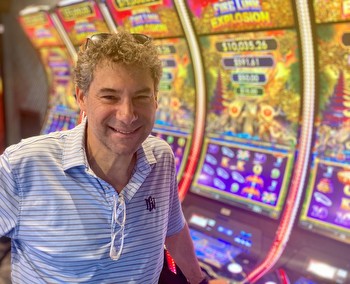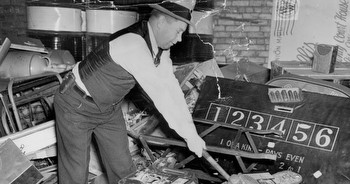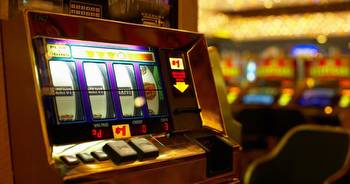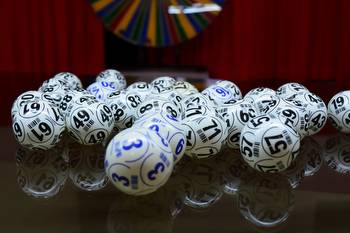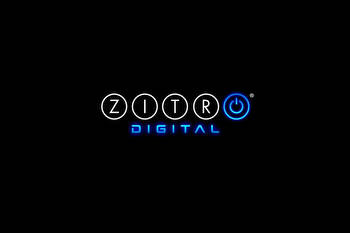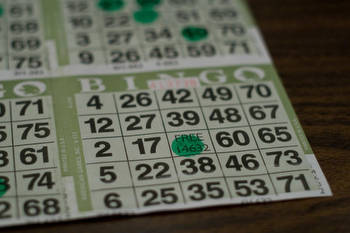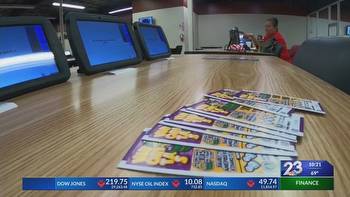New rule on Minnesota e-pull tabs could reduce revenue by 60%, charitable gambling group says

MOORHEAD — Concerned residents gathered inside Moorhead American Legion Post 21 on Thursday, Sept. 21, anxious about how the shift in laws surrounding electronic pull tabs will impact funds raised from local charitable gambling.
As part of this year's tax bill, the Minnesota state Legislature handed down new restrictions on e-pull tabs which bans among other things "open all" or free play features, including bonus games and other pop-ups that show up at the end of each game. The open all function allowed players to open all rows of symbols simultaneously.
Keith Franke, a former Minnesota state representative from District 54a, told The Forum that this change will harm charities, small businesses and communities throughout Minnesota.
“We’re looking at a cliff and eventually we’re going to go over it," he said.
Franke now works as the executive director of Protect Our Charities, a group working to keep the pull tab industry strong. Together with representatives from Allied Charities of Minnesota and the Electronic Gaming Group, Franke is traveling the state to share why this change will negatively impact local communities, asking them to contact their representatives to change the law.
E-pull tabs, a charitable gaming system available in bars, restaurants and veteran’s clubs, were first legalized in Minnesota in 2012 to help pay for U.S. Bank Stadium in Minneapolis. Revenue from the machines helped pay off the stadium over 20 years ahead of schedule. Now, that tax income is flowing into the state’s general fund.
The rest of the money is divvied up between the distributor of the machine, the establishment that hosts it, and local charities. Franke has one in his own bar in Minneapolis, he said, and estimates that about 85% of the money put into e-pull tabs is redistributed in winnings to the players.
Between the bars and the distributor, charities get around 3% of the revenue before taxes, he said.
If the e-pull tab revenue drops, so does the money that the charities get. Franke is concerned that the changes will reduce that revenue by as much as 60%.
The new law also dictates that:
- The electronic game must be manually activated to play.
- The machines must be audited annually.
- Distributors cannot collect more than 25% of the profits in fees.
Franke said the restriction on free plays, etc., is the biggest concern. The new restriction will lower the number of games people play and thereby reduce revenue, he said.
During the 2022 fiscal year, e-pull tabs generated $1.9 billion in revenue, according to the Minnesota Gambling Control Board.
State Sen. Rob Kupec, DFL-Moorhead, and Rep. Jim Joy, R-Hawley, attended Thursday's event, and took a flurry of questions asked by the 50 or so people in the audience, most of whom were concerned about the change.
To help alleviate the potential fall in revenue, Kupec said the Legislature capped the amount of money distributors can charge for their product, as well as lowered taxes on the percentage of revenue that is going to the charities, he said.
The hope is that this will prevent charities from seeing any revenue loss, Kupec said. If that’s not the case, he said, lawmakers will have to look at solutions.
The change in law was regressive, Joy said. E-pull tabs are the future instead of the traditional paper tabs. Local communities may lose charitable revenue because of the move, adding that people will play e-tabs less now, he said.
The legislation in question arose in the second-to-last day of the session, Kupec said, after a Minnesota Court of Appeals lawsuit ruled the Minnesota Gambling Board improperly allowed "open-all" features on the e-pull tabs.
Other lawmakers became concerned that aspects of the e-pull tabs were violating treaty rights, which give sovereign tribal communities sole authority to operate slot machines.
Franke didn’t think the Legislature’s tax cuts or distributor’s profit caps would be enough to lessen the financial impact on charities and small businesses.
Machines that don’t comply with the new regulations will be removed from distributors and organizations by the state’s Gambling Control Board by Dec. 31, 2024, according to state statute.







